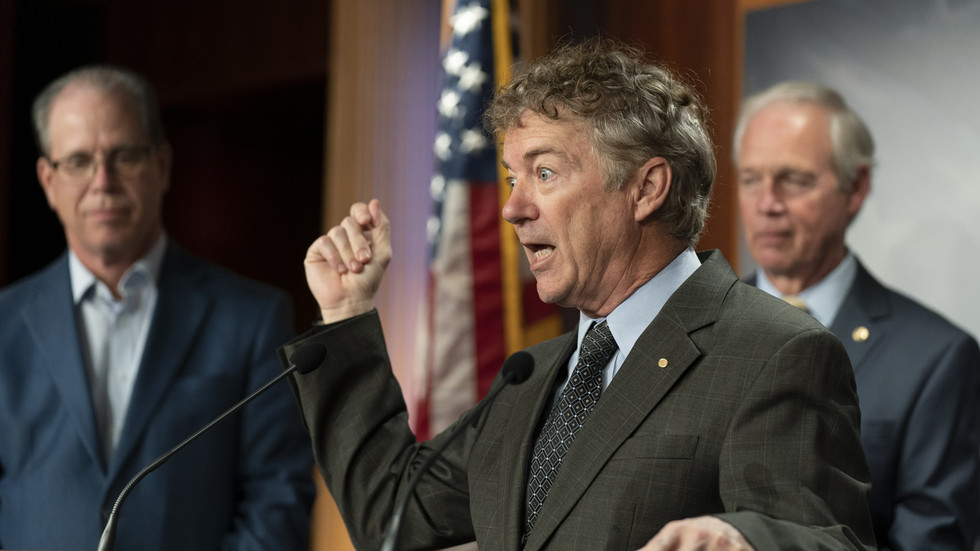
The decades-old legislation has been invoked to justify US military operations in at least 22 countries
FILE PHOTO: Senator Rand Paul (R-Kentucky) speaks during a news conference on Capitol Hill in Washington, DC, January 25, 2023. © AP / Manuel Balce Ceneta
The US Senate has overwhelmingly voted down a proposal to repeal a 2001 law which has been interpreted to grant sweeping war powers to the White House. Several presidents have cited the same measure as legal backing for dozens of military interventions around the world over more than 20 years.
Introduced by Republican Senator Rand Paul to mark the 20th anniversary of the US invasion of Iraq, an amendment to rescind the 2001 Authorization for Use of Military Force (AUMF) was rejected in a 9-86 vote this week. Only four lawmakers from each party, as well as Independent Senator Bernie Sanders, supported the legislation.
“Today, I offered the US Senate a chance to repeal the 9/11 2001 authorization for war to reclaim our constitutional power and send a message to the world that we are a nation of peace,” Paul said in a statement after the vote on Wednesday. “We should have risen above symbolism and … shown our respect for the Constitution, our fealty to the rule of law, and our sincere desire that peace, not perpetual war, be our legacy.”
The amendment would have repealed the authorization for the US war in Afghanistan – which remains on the books even after American forces withdrew from the country in 2021 – and finally abrogated the AUMF itself following a period of six months. After that, the libertarian-leaning Republican said “Congress could debate exactly where and how to authorize future force.”
The AUMF was signed into law by President George W. Bush on September 18, 2001, just days after al-Qaeda militants slammed hijacked airliners into New York’s World Trade Center and the Pentagon in Washington. While the bill was meant to approve military action against the perpetrators of the terrorist attacks, it has been invoked by every president since Bush to sanction more than 40 different interventions overseas, according to the Congressional Research Service.
The broad wording of the law has also been interpreted to justify operations targeting both al-Qaeda and its “associated forces,” though it does not actually contain the phrase. Nonetheless, Presidents Bush, Obama, Trump and Biden have acted upon that more expansive reading, using the AUMF for military action in at least 22 countries since 2001, beginning with Afghanistan.
Senator Paul vowed to continue efforts to repeal the authorization, insisting that Congress, not the president, is supposed to hold war-making powers under the Constitution. He has also co-sponsored a largely symbolic bill to revoke separate AUMFs from 1991 and 2002, hoping to formally end the Gulf and Iraq wars. It has some bipartisan backing, and was recently approved out of committee in a 13-8 vote, possibly signaling it will fare better than Paul’s amendment.
READ MORE:
UK lied about zero civilian deaths in Iraq – investigation




